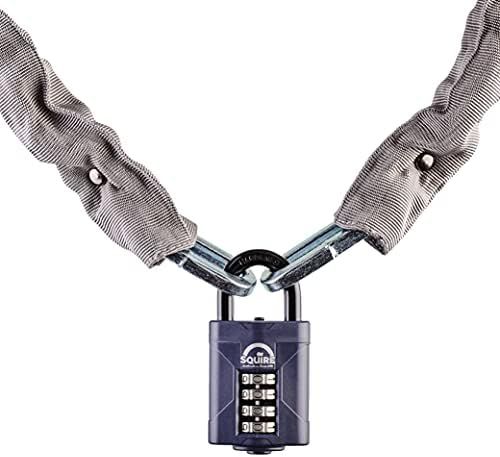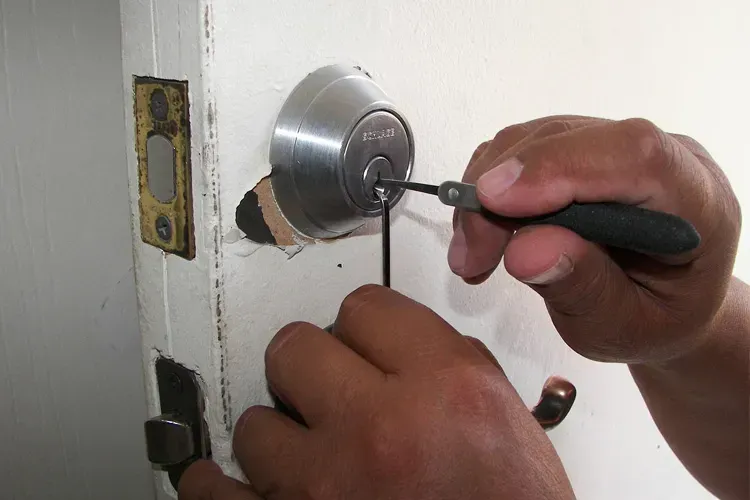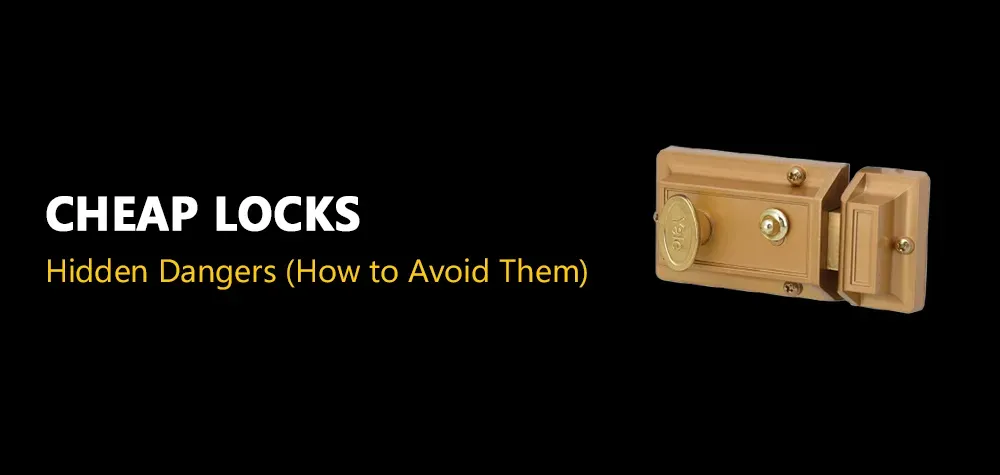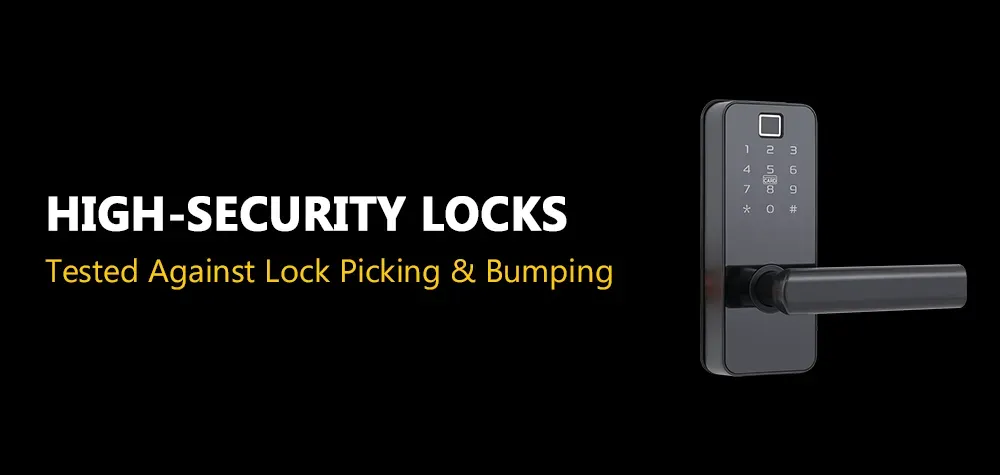Types of Locks and their Application
Welcome to our comprehensive guide on the diverse world of locks and their wide-ranging applications. As experts in the field of security, we understand the pivotal role that locks play in safeguarding our possessions, properties, and loved ones. In today's ever-evolving landscape of security solutions, it's essential to have a nuanced understanding of the various types of locks available and how they can best serve our needs.
In this blog post, we'll delve into the intricate details of different types of locks, categorizing them based on their intended applications. From automotive locks designed to protect our vehicles to residential locks securing our homes, and commercial locks fortifying businesses, each type serves a unique purpose in enhancing security and providing peace of mind.
Our goal is to equip you with the knowledge and insights necessary to make informed decisions when it comes to selecting the right locks for your specific requirements. Whether you're a homeowner looking to upgrade your residential security, a business owner seeking to enhance workplace safety, or a vehicle owner interested in bolstering car security, this guide will serve as your ultimate resource.
Read More aboutHow does the type of lock affect the complexity of the rekeying process?
Knob Locks
Knob locks are among the most common types of locks found in residential settings. They consist of a knob on one side of the door and a key cylinder on the other. These locks are primarily used for interior doors within homes, such as bedroom doors, closet doors, and bathroom doors. They offer a basic level of security and are relatively simple to install and operate. Knob locks are often chosen for their convenience and affordability, making them a popular choice for homeowners looking to secure their living spaces without investing in more sophisticated locking systems.
Application
In residential settings, knob locks find widespread use for securing interior doors. They are ideal for areas where privacy is the primary concern rather than high-level security. For example, bedroom doors and bathroom doors often feature knob locks to provide occupants with a sense of privacy and peace of mind. Additionally, closet doors and utility room doors may be fitted with knob locks to prevent unauthorized access to stored belongings or household utilities. While knob locks offer convenience and ease of use, they are not recommended for exterior doors or areas requiring heightened security, as they are more susceptible to forced entry compared to deadbolts or other sturdier locking mechanisms.
Read more about What steps should be taken to maintain the longevity of locks after rekeying?
Mortise Locks
Mortise locks are known for their durability and strength, making them a popular choice for both residential and commercial applications. These locks feature a large, rectangular body that is installed within the door itself, rather than on the surface like knob or lever locks. Mortise locks offer superior security and are resistant to forced entry attempts, making them ideal for use on exterior doors of homes, offices, and commercial buildings. Additionally, their sturdy construction and intricate internal mechanisms provide added protection against picking and tampering, giving property owners peace of mind knowing their premises are secure.
Application
Mortise locks are commonly used on exterior doors of homes, apartments, and commercial buildings where enhanced security is required. They are particularly well-suited for entry doors and front doors, as they provide a high level of protection against unauthorized access. In residential settings, mortise locks are often installed on main entry doors, garage doors, and back doors to deter burglars and intruders. In commercial settings, they are frequently used on office doors, storefront doors, and warehouse doors to safeguard valuable assets and sensitive information. With their robust construction and reliable performance, mortise locks offer a reliable solution for securing property and ensuring the safety of occupants.
Padlocks
Padlocks are versatile locking devices that are widely used for securing a variety of items, ranging from lockers and toolboxes to gates and storage units. These locks consist of a sturdy shackle that fits through a loop or hasp and is secured in place with a key, combination, or electronic code. Padlocks come in a range of sizes and designs, allowing users to choose the appropriate lock for their specific security needs. They are valued for their portability, ease of use, and affordability, making them a popular choice for both residential and commercial applications.
Read more about Padlocks and Cabinet locks!
Application
Padlocks are employed in numerous settings to provide security and peace of mind. In residential settings, they are commonly used to secure outdoor sheds, bicycles, and garden equipment, as well as to lock gates and fences. Additionally, padlocks are often used to secure storage units, lockers, and personal belongings in shared spaces such as gyms, schools, and workplaces. In commercial settings, padlocks are utilized to secure toolboxes, machinery, and equipment on construction sites, as well as to safeguard merchandise in retail stores and warehouses. With their versatility and reliability, padlocks offer a convenient and effective solution for protecting valuable assets and preventing unauthorized access.
Cam Locks
Cam locks are simple yet effective locking mechanisms commonly used in a variety of applications due to their versatility and ease of use. These locks consist of a cylindrical body with a rotating cam at one end, which is operated by a key or tool to secure or release the locking mechanism. Cam locks are available in a range of sizes and configurations, making them suitable for use in diverse settings such as cabinets, mailboxes, furniture, and vending machines. They offer a reliable and cost-effective solution for securing belongings and restricting access to authorized individuals.
Application
Cam locks find widespread application in both residential and commercial environments. In residential settings, they are commonly used to secure cabinets, drawers, and mailboxes, providing homeowners with a convenient way to protect valuable items and sensitive documents. Additionally, cam locks are often installed on filing cabinets, cash drawers, and display cases in retail stores and offices to prevent theft and unauthorized access. In industrial settings, cam locks are utilized in machinery, equipment, and toolboxes to ensure safety and security on the shop floor. With their simple yet sturdy design, cam locks offer a practical solution for securing a wide range of items in various settings.
Deadbolt Locks
Deadbolt locks are renowned for their superior strength and security, making them a popular choice for securing exterior doors in residential and commercial buildings. Unlike spring bolt locks, which can be easily bypassed with a credit card or similar tool, deadbolts feature a solid metal bolt that extends into the door frame, providing enhanced resistance to forced entry attempts. Deadbolt locks are available in single-cylinder and double-cylinder configurations, with the latter requiring a key to unlock from both the inside and outside. This added security feature makes double-cylinder deadbolts ideal for doors with glass panels or sidelights, as it prevents intruders from reaching in to unlock the door.
Application
Deadbolt locks are primarily used on exterior doors of homes, apartments, and commercial buildings to bolster security and deter burglars. They are typically installed in conjunction with knob or lever locks to provide multiple layers of protection against unauthorized access. Deadbolts are particularly effective on entry doors, back doors, and garage doors, where they help reinforce the door's weakest points and prevent intruders from gaining entry. In commercial settings, deadbolts are commonly found on office doors, storefront doors, and warehouse doors to safeguard valuable assets and confidential information. With their robust construction and reliable performance, deadbolt locks offer a high level of security and peace of mind for property owners.
Biometric Locks
Biometric locks represent the cutting edge of security technology, offering advanced features and convenience for both residential and commercial applications. These locks utilize biometric data such as fingerprints, retinal scans, or facial recognition to grant access, eliminating the need for traditional keys or codes. Biometric locks are highly secure and virtually impossible to duplicate, providing unparalleled protection against unauthorized entry. They offer fast and convenient access for authorized users while ensuring maximum security for homes, offices, and sensitive areas.
Application
Biometric locks are employed in a wide range of settings where security and access control are paramount. In residential environments, they are commonly used to secure front doors, home offices, and safes, allowing homeowners to enjoy keyless entry and enhanced security. Biometric locks are also popular in commercial and institutional settings, where they are used to control access to sensitive areas such as server rooms, laboratories, and storage facilities. In addition to providing superior security, biometric locks offer convenience and flexibility, allowing administrators to easily manage access permissions and monitor entry logs. With their advanced features and robust security measures, biometric locks are an ideal choice for modern homes and businesses seeking top-of-the-line security solutions.
Lever Handle Locks
Lever handle locks are a popular choice for both residential and commercial applications due to their ease of use and accessibility. These locks feature a lever handle that is pushed down to engage the locking mechanism, making them ideal for individuals with mobility issues or limited dexterity. Lever handle locks come in a variety of styles and finishes to complement any decor, making them a versatile option for interior and exterior doors alike. Additionally, lever handle locks can be easily installed and operated, providing a convenient and reliable solution for securing homes, offices, and other properties.
Application
Lever handle locks are commonly used on interior doors such as bedroom doors, bathroom doors, and closet doors in residential settings. Their user-friendly design makes them particularly well-suited for individuals with disabilities or elderly occupants who may have difficulty turning traditional doorknobs. In commercial buildings, lever handle locks are frequently installed on office doors, conference room doors, and common area doors to facilitate easy access for employees and visitors. Lever handle locks are also popular in healthcare facilities, schools, and government buildings where accessibility and ease of use are paramount. With their ergonomic design and versatile applications, lever handle locks offer a practical and stylish solution for securing doors in various settings.
Digital Locks
Digital locks, also known as electronic locks or keypad locks, have revolutionized the way we secure our homes and businesses. These locks utilize advanced technology such as keypads, touchscreens, or Bluetooth connectivity to grant access, eliminating the need for traditional keys. Digital locks offer a high level of security and convenience, allowing users to enter a personalized code or use a smartphone app to unlock doors. Some digital locks also feature additional security features such as built-in alarms, tamper detection, and remote access control, providing peace of mind for property owners.
Application
Digital locks are widely used in residential, commercial, and institutional settings where security and convenience are paramount. In homes, digital locks are commonly installed on front doors, back doors, and garage doors to enhance security and simplify access for homeowners and family members. In commercial buildings, digital locks are used to secure entry doors, office doors, and restricted areas, allowing employees to enter and exit with ease while ensuring maximum security against unauthorized access. Digital locks are also popular in hospitality and rental properties, where they offer keyless entry for guests and tenants, eliminating the need for physical keys and simplifying check-in procedures. With their advanced features and versatile applications, digital locks are an ideal choice for modern properties seeking state-of-the-art security solutions.
Rim Locks
Rim locks, also known as surface-mounted locks, are a traditional type of lock commonly found on wooden doors and gates. These locks are installed on the surface of the door rather than being mortised into the door frame, making them easy to install and operate. Rim locks typically feature a latchbolt that extends from the lock body and engages with a strike plate mounted on the door frame to secure the door. They are available in a variety of styles and finishes to suit different door designs and architectural aesthetics, making them a versatile option for both residential and commercial applications.
Application
Rim locks are commonly used on interior doors, exterior doors, and gates in residential properties, providing a simple and effective means of securing entry points. They are often installed on front doors, back doors, and basement doors in homes, as well as on garden gates, shed doors, and garage doors to prevent unauthorized access and theft. In commercial buildings, rim locks are frequently used on office doors, storage rooms, and utility closets to control access and protect valuable assets. Rim locks are also popular in historic and period properties, where they complement the architectural style and add a touch of traditional charm. With their straightforward installation and reliable performance, rim locks offer a practical solution for securing doors in a variety of settings.
Smart Locks
Smart locks represent the cutting edge of home security technology, offering unparalleled convenience and control over access to your property. These locks are designed to connect to your home's Wi-Fi network, allowing you to lock and unlock your doors remotely using a smartphone app. Smart locks can also be integrated with other smart home devices, such as security cameras and smart doorbells, to create a comprehensive home security system. With features like keyless entry, activity logs, and customizable access codes, smart locks provide enhanced security and flexibility for homeowners.
Application
Smart locks are ideal for residential properties seeking a modern and convenient security solution. They are commonly used on front doors, back doors, and garage doors in single-family homes, townhouses, and condominiums, allowing homeowners to monitor and control access to their property from anywhere in the world. Smart locks are also popular in rental properties and vacation homes, where they offer keyless entry for guests and tenants and eliminate the need for physical keys. In addition to residential applications, smart locks are increasingly being used in commercial and institutional settings, such as office buildings, apartment complexes, and hotels, where they provide secure and convenient access control for employees, residents, and guests. With their advanced features and seamless integration with smart home technology, smart locks offer a modern and efficient solution for enhancing security and access control in various environments.
Barrel Bolt
Barrel bolts, also known as slide bolts or surface bolts, are simple yet effective locking devices commonly used to secure doors, windows, gates, cabinets, and other entry points. These bolts consist of a cylindrical metal rod (the "barrel") that slides into a mounted housing or bracket to lock the mechanism in place. Barrel bolts are operated by manually sliding the rod into the bracket to engage the lock and sliding it back to disengage the lock, providing a quick and easy way to secure doors and other openings. They are available in various sizes and materials, including brass, stainless steel, and zinc-plated steel, to accommodate different applications and aesthetic preferences.
Application
Barrel bolts are versatile locking devices suitable for a wide range of residential, commercial, and industrial applications. In homes, barrel bolts are commonly used to secure interior doors, cabinets, closets, and windows, providing an additional layer of security and privacy. They are often installed on bathroom doors, bedroom doors, and pantry doors to prevent unauthorized access and protect personal belongings. In commercial buildings, barrel bolts are used to secure office doors, storage areas, and equipment cabinets, safeguarding valuable assets and sensitive information. They are also commonly used in retail stores, restaurants, and hospitality establishments to secure display cases, cash registers, and liquor cabinets. In industrial settings, barrel bolts are utilized to secure machinery, tool chests, and access panels, ensuring workplace safety and preventing unauthorized entry. With their simple yet reliable design, barrel bolts offer a cost-effective solution for securing various types of doors and openings in different environments.
Euro Profile Cylinders
Euro profile cylinders, also known as Euro cylinders or European profile cylinders, are a type of lock cylinder commonly used in Europe and other parts of the world as a standard locking mechanism for doors, primarily uPVC and composite doors. These cylinders feature a unique oval-shaped profile with a single central fixing point and are available in different sizes and configurations to fit various door thicknesses and locking mechanisms. Euro profile cylinders are typically operated by a key from the outside and a thumbturn or key from the inside, providing both security and convenience for homeowners and occupants. They are compatible with a wide range of multipoint locking systems, making them a popular choice for residential and commercial properties alike.
Application
Euro profile cylinders are widely used in residential buildings, apartment complexes, and condominiums as the primary locking mechanism for entry doors, patio doors, and French doors. They offer a high level of security against intruders and unauthorized access while allowing for easy operation and key management. Euro profile cylinders are also commonly used in commercial buildings, offices, and retail establishments to secure exterior doors, fire exit doors, and emergency exits. They are compatible with various door hardware such as lever handles, knob handles, and pull handles, allowing for flexibility in design and functionality. Euro profile cylinders are also frequently used in institutional settings such as schools, hospitals, and government buildings, where security and access control are critical. With their robust construction and reliable performance, Euro profile cylinders provide an effective solution for securing doors in a wide range of applications and environments.
Conclusion:
In conclusion, understanding the different types of locks and their applications is essential for ensuring the security and protection of residential, commercial, and industrial properties. Each type of lock offers unique features and benefits tailored to specific needs and requirements. Whether it's the robustness of a deadbolt lock, the convenience of a digital lock, or the versatility of a barrel bolt, choosing the right lock for the intended application is crucial for enhancing safety and peace of mind. By selecting the appropriate locks and implementing effective security measures, property owners can deter intruders, prevent unauthorized access, and safeguard their belongings and assets.
Call Us Any Time!






